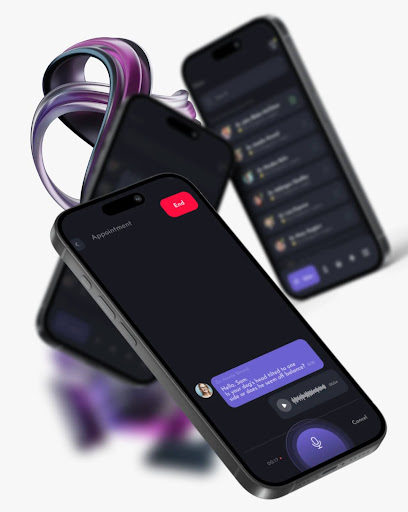In today’s fast-paced digital world, healthcare mobile app development has emerged as a game-changer in the medical industry. These apps empower patients and healthcare providers alike, offering real-time access to critical health data, remote consultations, medication management, appointment scheduling, and much more. As healthcare becomes increasingly data-driven and patient-centered, mobile apps are proving vital for improving service quality, reducing operational costs, and enhancing the patient experience.
Table of Contents
ToggleWhy Healthcare Needs Mobile App Solutions
Healthcare systems worldwide face mounting challenges—from aging populations and chronic diseases to staff shortages and rising costs. Mobile apps offer innovative ways to address these issues. By digitizing and streamlining healthcare services, apps can:
- Improve communication between doctors and patients
- Enable remote monitoring and telemedicine
- Ensure timely access to medical records
- Enhance compliance with treatment plans through reminders and trackers
In essence, they bridge the gap between patients and providers, bringing healthcare to the fingertips of users.
Core Features of Successful Healthcare Apps
To be effective, a healthcare mobile app should integrate the following features:
- Telehealth Capabilities: Video calls, chat support, and virtual consultations for remote care.
- Electronic Health Records (EHR): Secure and user-friendly access to personal medical histories.
- Appointment Scheduling: Simplified interfaces for booking and managing appointments.
- Medication Reminders: Notifications and alerts to improve medication adherence.
- Health Trackers: Real-time tracking of vitals, fitness, and lifestyle metrics.
- Integration with Wearables: Seamless syncing with devices like smartwatches or fitness bands.
Security is also paramount—HIPAA compliance and end-to-end encryption are essential to ensure the privacy and safety of sensitive health data.
Benefits to Patients and Providers
Mobile healthcare apps are a win-win for both patients and healthcare providers. For patients, these apps provide convenience, quicker access to care, and improved health literacy. For providers, they lead to better patient engagement, more accurate diagnostics, and efficient management of patient loads.
Furthermore, the data generated from these apps can offer valuable insights for research, treatment personalization, and preventive care strategies.
Challenges in Healthcare App Development
Despite the advantages, developing a reliable healthcare app is not without challenges. Some of the most common hurdles include:
- Regulatory Compliance: Navigating healthcare laws and data protection regulations like HIPAA and GDPR.
- Data Security: Ensuring robust protection against breaches or leaks.
- Interoperability: Making apps compatible with existing hospital management systems and EHR platforms.
- User Experience: Designing intuitive, accessible, and inclusive interfaces for users of all ages.
Overcoming these obstacles requires experience, industry knowledge, and the right development partner.
Choosing the Right Development Partner
The success of a healthcare mobile app largely depends on choosing a development company with domain expertise. A partner that understands both the technical and regulatory intricacies of healthcare can drastically reduce time-to-market while ensuring high quality and compliance.
One such experienced company is Attract Group. They specialize in delivering custom healthcare solutions tailored to client needs, focusing on usability, scalability, and security. With a proven track record and a team of expert developers, they help healthcare providers transform their ideas into powerful digital tools that improve outcomes and experiences.
Final Words
Healthcare mobile app development is no longer optional—it’s a necessity for modern healthcare systems striving to meet rising patient expectations and operational demands. With the right technology partner, medical organizations can leverage mobile apps to revolutionize the way they deliver care, manage data, and engage with patients.
As the digital health revolution continues, those who invest early in mobile innovation will be best positioned to lead the way into a healthier, more connected future.








